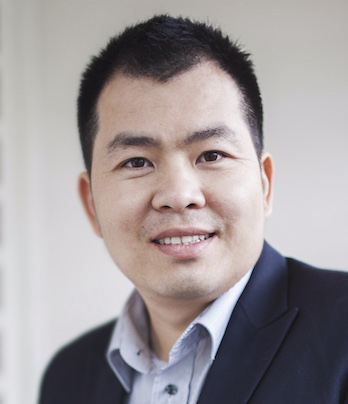TU Berlin, Siemens AG (SAG) and University of Oxford (UoO) recently partnered in a trilateral seed fund to stimulate joint research project bids. One of the altogether five successful seed projects was initiated by BIFOLD Junior Fellow Dr. Danh Le Phuoc, a DFG principle investigator at TU Berlin, and focuses on IoT and Edge computing, in particular for smart factory, autonomous vehicle, smart city and smart energy network. The seed projects will run during 2022 and are aimed at developing large-scale public funding bids. Since announced, two consortiums have been established by Danh Le Phuoc to build two collaborative research proposals targeting EU Horizon calls in April, 2022. Each consortium is composed of 16-17 partners from industries such as Bosch, BMW, Dell, NVIDIA and Siemens and world-leading universities such as University of Oxford, TU Vienna, University of Paris, University of Fribourg, as well as National and Kapodistrian University of Athens.

The first consortium will target to lower the effort in building swarm intelligence systems for autonomous vehicles, traffic junctions, factories and health management systems. The second one aims to build a platform with a decentralized data ecosystem to timely derive actional insights from extreme data generated by digital twins of vehicles, cities, satellites and production lines. The extreme data is characterized by very large volumes of multimodal data streams (e.g. camera network, lidars and satellites) generated at a very high speed. The actional insights are vital inputs to build low-latency and trust-worthy AI components for driving assistant systems, wild fire monitoring, traffic control or machine scheduling.

Danh Le Phuoc is a pioneer in the research area “semantic stream processing and reasoning” who successfully acquired more than two million Euro funding from EU, Irish and German funding agencies for projects around this area in the last decade. Semantic stream is inspired by the semantic and episodic memory from cognitive neuroscience. Semantic memory refers to our brain’s repository of general world knowledge. Whereas episodic memory refers to an “episodic memory system”, which encodes, stores, and allows access to “episodic memories”, e.g. recollection of personally experienced events situated within a unique spatial and temporal context. His line of research emulates them via dynamic knowledge graphs which represent multimodal sensory streams interlinked with domain and common-sense knowledge.
So far, his research was used in various industrial applications and EU projects, e.g OpenIoT, Big-IoT, Fed4Fire, SMARTER and GAMBAS to enable semantic interoperability and data integration of IoT-related data streams.
“I believe this research area can do much more towards cutting edge applications such as autonomous driving, robotics, intelligent transportation systems and smart factories. This vision is shared not only by large industries but also by world-leading research groups”, explains Danh Le Phuoc. Within the next four to five years he and his partners aim to establish a new main-stream research area and push forward innovation around dynamic knowledge graphs to democratize and interlink digital twins in real time.


